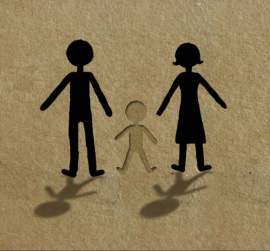
Divorce Process in Utah

Guide to the Divorce Process in Utah
If you want to divorce your spouse in the state of Utah, you may wonder what the actual procedure looks like. Understanding the steps involved in the divorce process in Utah can make it easier for you to file successfully. You may be wondering whether you need a lawyer (the surprising answer: usually not!) and whether you'll need to appear in a trial (almost definitely not). This guide can help you know what to expect at each stage of the divorce process in Utah so that you don't get caught by surprise.
Complaint and Answer
Divorces in Utah begin when one spouse files a legal complaint. This is the same as the process for starting a civil suit (divorces are one kind of civil suit processed by the civil court system). If you are the spouse filing the initial paperwork, you will be called the plaintiff. The spouse receiving divorce papers is the defendant.
After the plaintiff spouse files a complaint, the defendant spouse must be officially served with a copy of the complaint and summons. The summons will notify the defendant spouse of their right to file a written answer to the complaint. Both the summons and the answer should contain grounds for divorce
Online Document Preparation
For most couples in Utah, it may be possible to fill out all your necessary divorce forms online. The state's online document preparation system makes the divorce process in Utah substantially easier for anyone with an internet connection.
There are some restrictions on using the system: couples must have an income under a specified maximum (around $10,000 per month), and can only have six or fewer children. If these qualifications are not met, most people will need to seek legal assistance in filing the forms.
Most divorces do not go to trial after the complaint and answer are filed. Instead, the vast majority of couples choose to work out a divorce settlement. Settlements are signed after both parties figure out an agreement in the divorce. You can only reach a settlement if you agree on all the issues that were contested in the complaint and answer, including child custody or alimony arrangements if those were requested.
If divorcing spouses have a difficult time coming to an agreement, a mediator can sometimes be helpful. Mediators use an informal process to assist in negotiations and can make sure you are focused on the issues that matter in the divorce process in Utah. Hiring a mediator can save money and time for both spouses, so this is a common option in today's courts.
Discovery and Trial
If you cannot come to an agreement on one or more issues in your divorce, the divorce process in Utah will conclude with a divorce trial. Before the trial, the discovery process will allow each spouse to investigate the other's finances. Trials are quite expensive and can be difficult in many ways for the spouses participating in them. Most spouses prefer to avoid trial and come to an agreement before the divorce process in Utah reaches this conclusion.



















